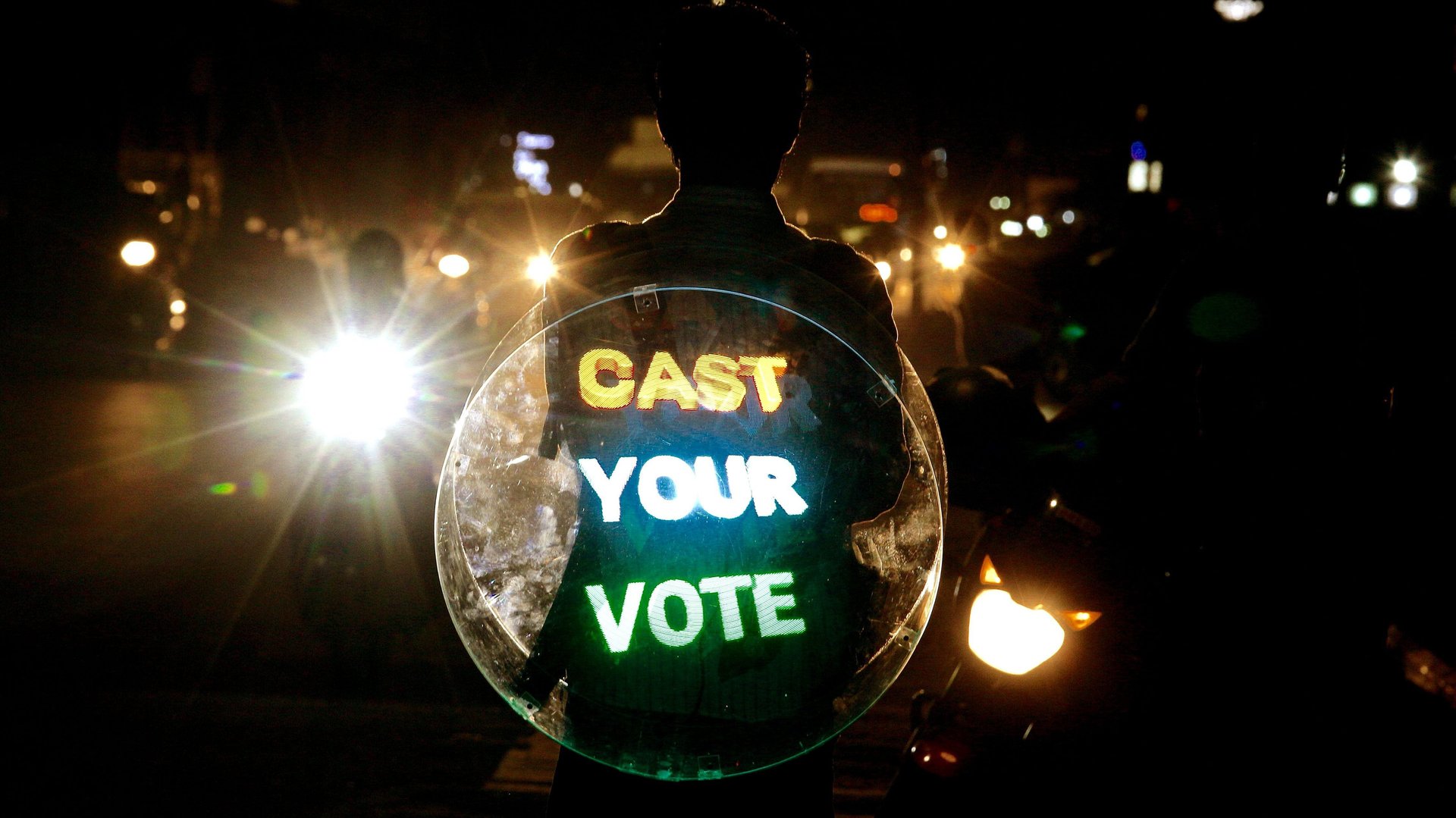Why my friends and I are sitting out this election
For the longest time, the only Indian thing about me was my passport.


For the longest time, the only Indian thing about me was my passport.
My family relocated to London when I was 10 and then, in 2008, we moved to Singapore. By the time I turned 18, I was set to attend university in the US for four years, during which time the 2014 Indian elections were held.
In June 2017, I relocated to Mumbai. Then began my struggles to get a PAN card (a unique 10-digit alphanumeric identity allotted to each taxpayer), only to realise it wasn’t enough to open a bank account. I filled out boring forms and stood in long lines to get my biometrics done for Aadhaar, the 12-digit ID assigned to Indian residents. Finally, I had someplace my salary could be deposited so I could breathe easy.
I still had two pressing things on my to-do list: get a driver’s license and a voter ID card. Nearly two years on, I still have neither.
A flawed system
Honestly, red tape is a nightmare in this country.
I was speaking to a 21-year-old friend who has grown up in India and applied for a voter ID many months ago and still has no news. She doesn’t know if her name’s on the electoral roll either if only to be able to use another government ID to vote. “When I tried to make a voter ID, the portal never functioned. It kept crashing,” the Mumbai resident said. She called the helpline twice, holding on for over an hour both times, fruitlessly.
“I am very much a responsible citizen of this country, it’s just that the system isn’t helping me out here much. It’s a sad thing to say,” she added.
Anvita Kamath, 22, applied for her voter ID online on Jan. 01 this year. Two months later, someone came home to collect some documents—proof of address, pictures, etc. “I’ve been following up with the guy and he just keeps saying, “Pandrah tareekh se pehle mil jayega, aapka kaam ho jayega (You’ll get it by 15th, your work will be done’),” Kamath said. She appreciates that the process is digital and is moving along, but she’s sceptical about getting the ID in time for this year’s elections, already underway.
Clearly, it’s too late for me to even try and register now.
Moreover, I don’t really know where I’ll be in another five or 10 years. I could be in another city. I could be abroad again. And being away from where I’ve registered to vote makes the registration process almost futile. Just ask Shreya Dhanwanthary, a 27-year-old actor who lives in Mumbai but is registered as a voter in Hyderabad.
“I have tried shifting registration and like every government administrative work, I’ve had to run from pillar to post with no one having any answers. They always point to another window or another person,” Dhanwanthary said. “I do want to vote. But planning to vote will be taking money out of my account to go purchase a flight ticket for a government that will eventually run out of money to fix potholes, let alone make any discernible change.”
Like Dhanwanthary, up to 45% of young Indians will not be travelling to cast their votes, a recent survey by English news app Inshorts revealed.
A sense of hopelessness is also getting in the way. “Corruption and hate-mongering seem to be inevitable,” Dhanwanthary said. “But the most important things are the protection of civil liberties while upholding the freedoms mentioned in the constitution of India, protection and extending women’s rights and safety laws and for children, and improvement in the basic standard of living and necessity change in the hapless situation of farmers.”
I second this despair. Even if I were to vote, I don’t know whom I’d vote for.
On one side is blatant religious bigotry, on the other is a scam-tainted bunch.
I’m at a point where I feel like my uninformed vote, influenced by an influx of fake news and barrage of biases in my bubble, could sway the election in a damaging way. I almost want no part in that. And the option of NOTA (none of the above), wherein a citizen can reject all the contesting candidates, has no electoral value in India. The candidate with the most votes still stands to win the election. So that’s also not an option.
As I explained my dilemma to a friend, I received a cliched but apt reply: “It’s like being caught between a rock and a hard place.”
Read Quartz’s coverage of the 2019 Indian general election here.